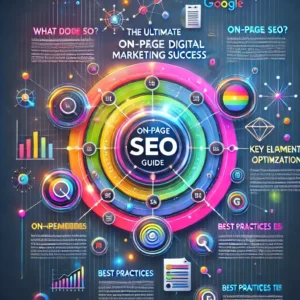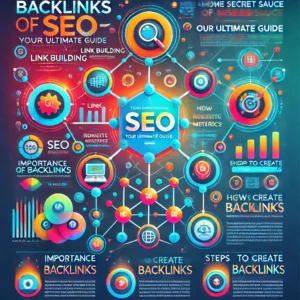Social media and SEO, when combined, make for a powerful duo in the constantly-changing digital space – both striving toward a common goal of elevating your brand to new heights of visibility. For anyone trying to build a presence online, knowing how these two play off each other is a huge asset. Having an SEO and digital marketing background, I have witnessed and experienced how a great social media strategy can reinforce SEO and vice versa. Now, let’s get into how to leverage this amazing combination.
Table of Contents
1. The Importance of Social
Media for SEO
2. Social Signals: Do These
Affect Search Rankings?
3. Social Media Content That
Drives SEO
4. How to Build Confidence
Among Consumers in the Brand by means of Social Media
5. How to Write Share-Worthy
Content That Will Hit Big
6. Using Social Media for Link
Development
7. Enhanced Interaction &
Traffic Generation
8. Q&As about Combining
Social Media with SEO
1. The Importance of Social Media for SEO
During its infancy, SEO was solely a matter of keywords, backlinks, and on-page factors. But user behavior changed, and so did the algorithms. The influence of social media on SEO indirectly today, is also creating brand awareness, credibility and engagement, which directly affect your ranking.
For example if you are posting informative content on social platforms and people are interacting with it, then this is a positive signal too for your brand, and Google or any search engine will also consider your content good and valuable.
2. Social Signals: Do These Affect Search Rankings?
Social signals refer to the behavior that users engage with on social media, like likes, shares and comments. Now, although Google never mentions social signals as part of their ranking system, there is no doubt that these interactions do have a huge effect on how people perceive your brand and how likely they are to trust you. This can quickly improve rankings and perform even indirectly by driving traffic and engaging more to link to your content when your social media ranking is high.
For Example : a meaningful post on LinkedIn or Twitter encourages users to return to your website and read more content. In the long run, this results in higher chances of natural backlinks and higher SEO score.
3. Social Media Content That Drives SEO
Publishing content on social media creates a wider audience for the content than just your website. Social media platforms such as Twitter, Facebook, and Instagram are great hubs for spreading your message, introducing your name to new audiences, and bringing visitors to your website. Every click, share, or other engagement increases your online presence and, in turn, may improve your rank on search engines.
For Example : you wrote a blog post on digital marketing trends. LinkedIn can help you share your content with professionals in your industry, which can lead to them linking to your content in their own posts and positively impacting your SEO performance.
4. How to Build Confidence Among Consumers in the Brand by means of Social Media
One of the main pillars of successful SEO is authority. Social media is the place where you can talk about your expertise, and further engage with followers, and position you as an authority. This part of trust building will help increase your brand identity and would help in better impact of SEO, because Google mainly focuses on the E-E-A-T (Experience, Expertise, Authoritativeness, Trustworthiness) of the content.
For Example: Use Twitter or LinkedIn to join an industry conversation, answer questions and share insights. If you perform consistency and share knowledge, you will gain trust to
users, and they will give you the chance to connect with your brand on your website.
5. How to Write Share-Worthy Content That Will Hit Big
Social Media for SEO in a Nutshell: Create Content That People Want to Share Not only does high-quality, pertinent, and engaging content draw followers, but it also gets shared. Especially in today’s fast-paced digital environment — where reading long paragraphs has become a thing of the past — visual content, infographics, and Short-form videos naturally attract more attention.
For Example: Use excerpts from a more extensive Blog post and make them visually appealing posts for Instagram/FB This highlights your content and makes them read the full piece
on your site.
6. Using Social Media for Link Development
Both link building is an important SEO factor, and social media offers a more casual, easy way to create backlinks. When people see your content on various platforms, they might share it on their blogs or social media channels, including links to your site if they find the content helpful.
For Example : A fellow marketer may reference your article in their own blog, if you share an insightful article on LinkedIn. It takes a bit of work to time and means people might not click the link you have placed on their reality make a link is very valuable in SEO but crypto summer is also great for Google to show them that your content have authority.
7. Enhanced Interaction & Traffic Generation
Site engagement might not be directly under your control, but like social media, where engagement is the currency, increased site engagement is one thing that search engines are paying great attention to lately. For instance, When Instagram, Facebook, and Twitter drive traffic directly to your website, your time on site, click through rate, and engagement are more likely to go up. These metrics tell Google your website offers the visitor with some value.
For Example: Use Short-Form Video on TikTok or Instagram Reels to Tease or Summarize Blog Posts This pique interests and gets the readers engaged to visit your website for the complete
content.
Q&As about Combining Social Media with SEO
What is the role of social media in SEO?
While social signals do not have a direct impact on SEO, the increased awareness, traffic, and encouragement of backlinks that comes from social media leads to a positive correlation with stronger rankings. Although social signals do not directly affect Google rankings, a lot of engagement on social platforms is a sign of your brand authority, which indirectly sends strong signals to search engines that your content is relevant to their users and trustworthy.
How can social media help in enhancing brand trust?
Social Media: An Important Element of Brand Trust Being active with your followers, providing sound advice, and sharing useful material on social networks shows the trustworthiness of your brand. It builds trust, which in turn gets you more engagement and traffic to your website organically.
Which content works best for SEO via social media?
Social media is a home for visual content, infographics, and short-form videos. Post snippets / teasers of your blog posts; develop creative visuals, for example or use infographics to showcase data. By doing it so, it grabs the attention and compels people to visit your website to see its complete version.
Does Social Media provide backlinks that help with SEO?
Although these social media links generally get a no-follow status (which means they do not help with SEO), they still help your content to reach a wider audience, gain more traction, and the chances of getting other websites to link to your site with a followed link also become higher! With your content being messaged and linked to by more humans, Google also understands that you are an authority and scam image in your field.
Is it necessary to work on SEO for ALL social media platforms?
Not at all, we should actually be targeting platforms where your audience is most prominent. For instance, LinkedIn is ideal for B2B brands, while you can use Instagram and Facebook to build an audience around a B2C business. You can leverage the inherent strengths and audiences of each platform for your SEO strategy.
The role of hashtags for social media and their effect on SEO
Hashtags are not directly related to Google SEO but they help on Social Media visibility. Using the right & relevant hashtags can expose your content to a more extensive audience as well, which might result in increased engagement, branded searches, and visits to your website, all of which can enhance your overall online presence, which ultimately will help indirectly with SEO.
Do you need to be constantly changing what you post on some social media for SEO?
Yes, consistency is key. A consistent posting schedule along with a planned manner of interaction with your audience creates trust and helps to remain in the minds of your audience. New visitors also go back to your website, giving Google the impression that your content is fresh and relevant.

Conclusion
The integration of social media with SEO has become a crucial marketing strategy for digital marketing experts and has become mandatory rather than optional in this field. Social media itself may not directly rank you on the search engine listing pages (SERPs), but it plays a vital role in building brand visibility and authority, which indirectly sex up your SEO. Leverage this harmony to establish a strong digital footprint, increase organic traffic, and eventually, top search results.
The more active, consistent, and strategic you are with social media, the more SEO benefits you’ll reap, plus you’ll have a loyal and interested audience that continues returning. The best digital marketing strategies are also dynamic and so should you be in order to make the best use of social media & SEO.





